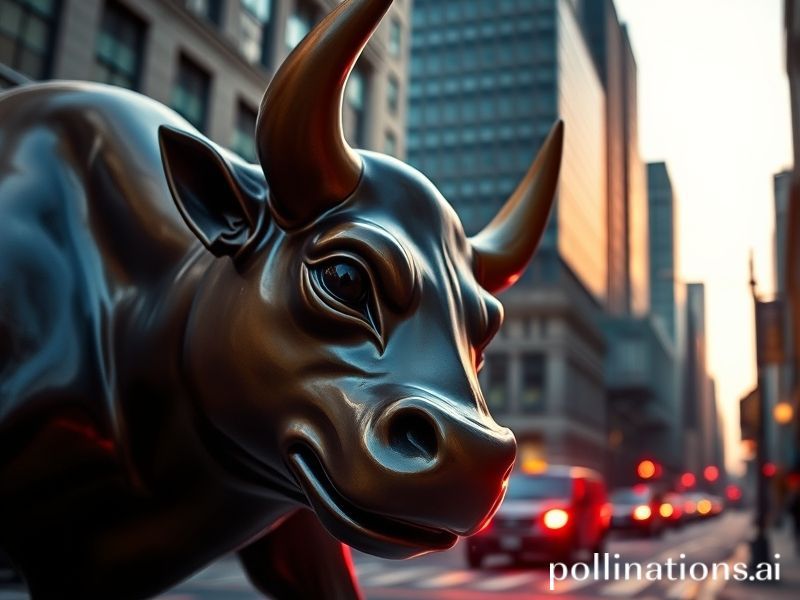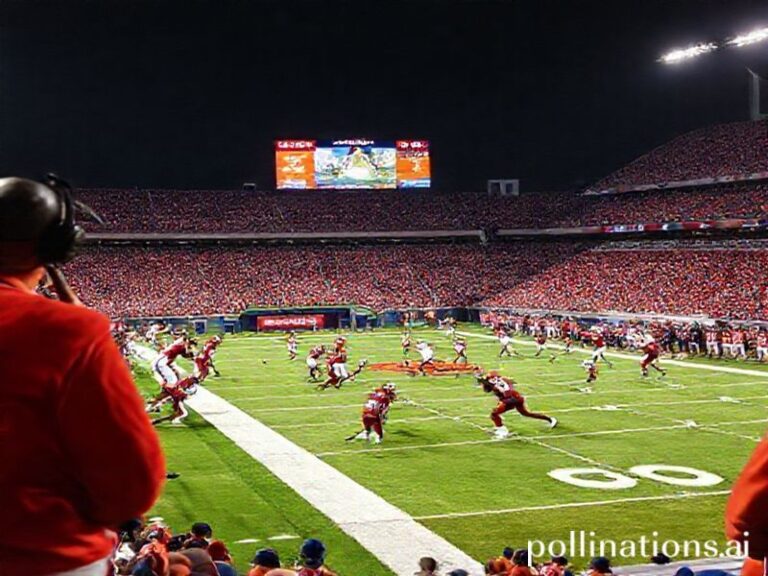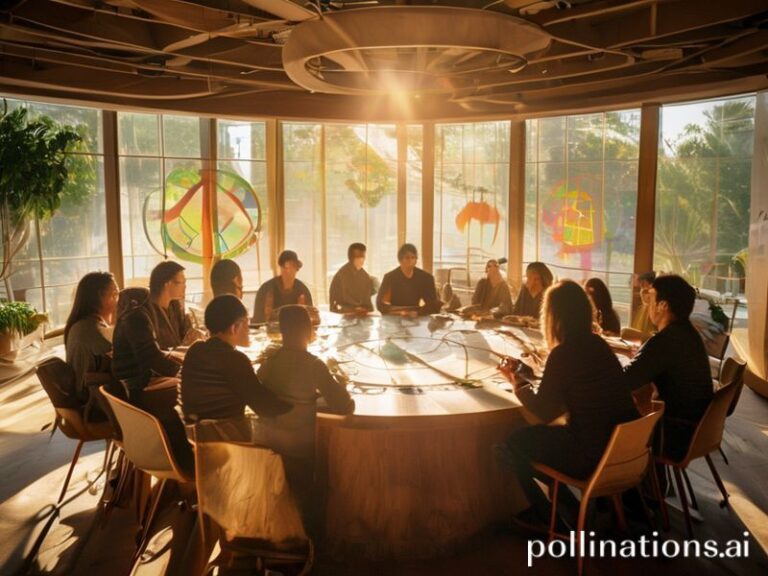Dow Today: How Thirty American Companies Conduct the Global Symphony of Human Anxiety
**Dow Today: A Global Barometer of Hope, Hype, and Human Folly**
NEW YORK—While the Dow Jones Industrial Average flirted with yet another arbitrary numerical milestone this morning, approximately 7.9 billion humans across the planet continued their daily struggle to eat, breathe, and pay rent. But let’s focus on what really matters: thirty carefully selected American corporations and their collective ability to make wealthy people slightly wealthier.
The Dow’s latest gyrations—up 0.3% at breakfast, down 0.5% by lunch, settling into what analysts call “a holding pattern” but what cynics might recognize as “rich men’s cardiac arrhythmia”—sent ripples through global markets faster than misinformation spreads through Twitter. Tokyo’s Nikkei caught the flu, London’s FTSE developed a slight cough, and by the time markets opened in Mumbai, everyone was checking their portfolios with the grim determination of a hypochondriac reading WebMD.
“What’s fascinating,” explains Dr. Margaret Thornfield, an economist at the London School of Economics who apparently finds mathematics more thrilling than human suffering, “is how a 100-point swing in the Dow can affect everything from copper prices in Chile to currency valuations in Thailand. It’s like watching a global game of financial dominoes, except the dominoes are people’s livelihoods and the players are mostly algorithms.”
Indeed, while the Dow represents merely thirty companies in one country, its influence stretches from the soybean fields of Brazil—where farmers anxiously watch American financial news despite speaking no English—to the trading floors of Singapore, where twenty-something analysts in $3,000 suits pretend to understand what “market sentiment” actually means.
The international implications are particularly rich today. As the Dow wavers, European pension funds holding American blue-chips experience the kind of existential dread typically reserved for philosophy majors. Chinese investors—who’ve been told capitalism would bring prosperity but mostly brought volatility—watch their American ADRs with the same expression medieval peasants reserved for solar eclipses: fear mixed with incomprehension, plus the sneaking suspicion that someone, somewhere, is definitely getting screwed.
Meanwhile, in developing nations, the Dow’s movements trigger currency fluctuations that determine whether imported medicine remains affordable or joins champagne and caviar on the “maybe next lifetime” list. A trader sneezes in Manhattan, and somewhere in Lagos, a hospital can’t afford basic antibiotics. It’s globalization’s version of the butterfly effect, except the butterfly has a Goldman Sachs account and the effect involves actual human mortality.
Today’s market narrative—something about inflation fears, interest rate hopes, and the Federal Reserve’s latest attempt to perform economic acupuncture—has particular resonance in countries where “inflation” isn’t a monetary policy challenge but a daily reality that turns wages into confetti. While American investors panic about their purchasing power eroding by 3% annually, Argentines shrug and continue their century-long experiment with triple-digit inflation, proving that human adaptability is indeed our species’ most remarkable trait after self-delusion.
The cruel beauty of the Dow’s global influence lies in its democratic indifference. It crushes kings and commoners alike, though admittedly kings have better cushions for the landing. When it falls, emerging markets discover they’re not emerging so much as submerging. When it rises, the benefits trickle down with the enthusiasm of molasses in Antarctica.
As another trading day concludes, with talking heads already breathlessly forecasting tomorrow’s movements based on “technical indicators”—a term that sounds scientific but carries the predictive power of reading tea leaves in a hurricane—we’re reminded that the Dow remains what it has always been: a sophisticated mechanism for transferring wealth from the impatient to the patient, from the uninformed to the informed, from the many to the few.
Global markets, like humanity itself, soldier on—forever hopeful, perpetually disappointed, but always ready to believe that this time, surely, the numbers will finally make sense.







